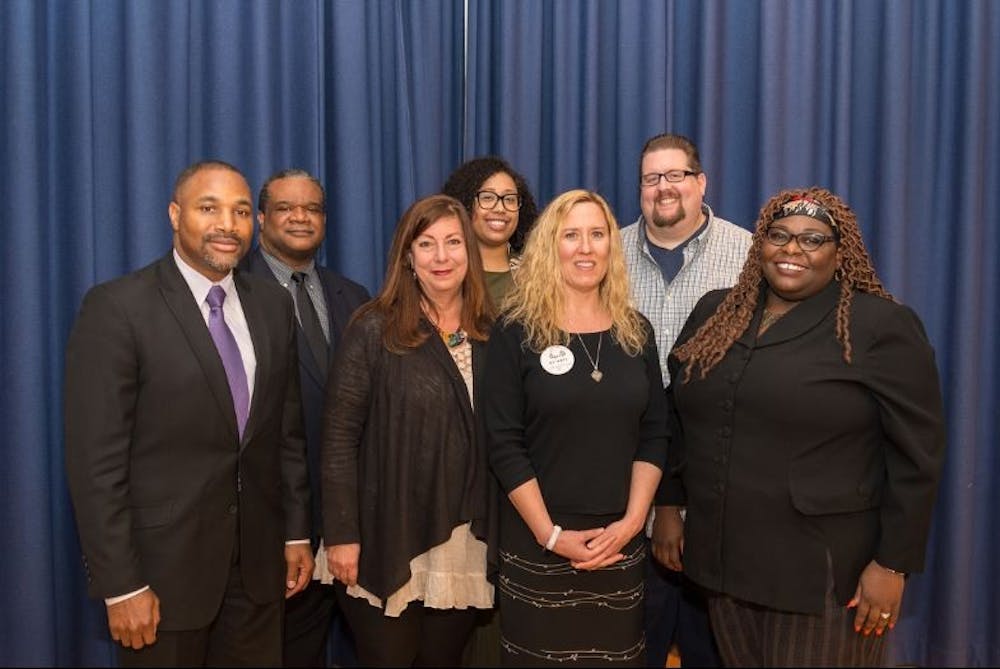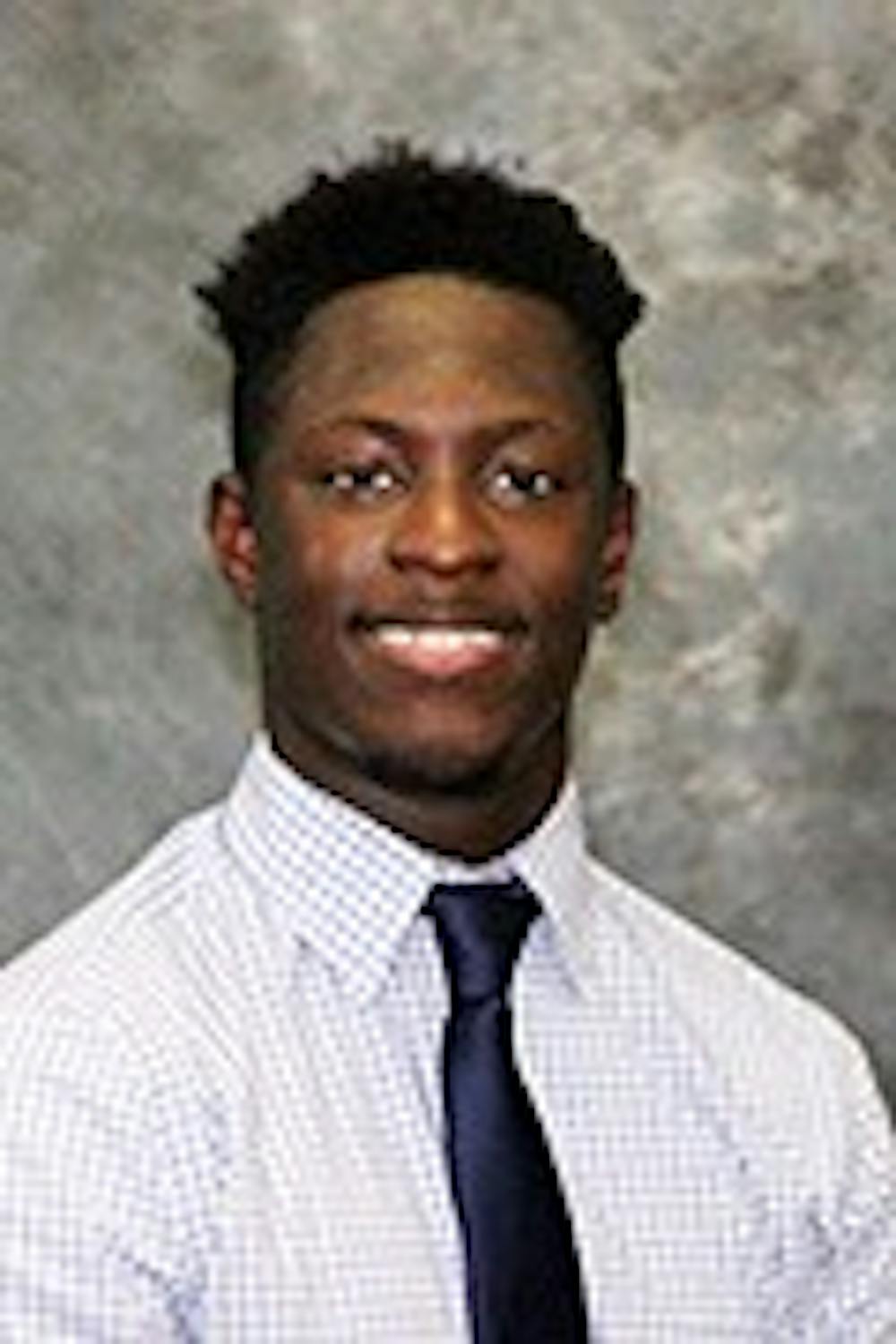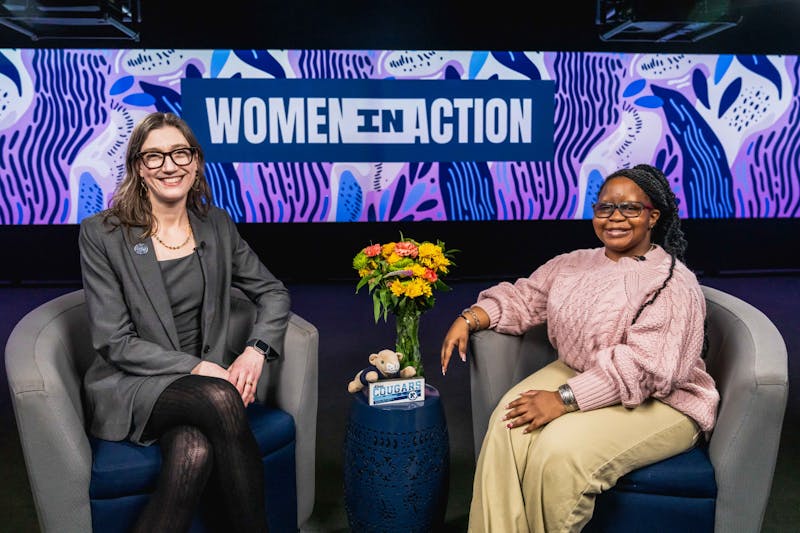As Kean students and members of the Kean community filled the confines of the Science, Technology, Engineering and Math (STEM) Building, the people inside of the gathering knew before the day even began that this event was one of acceptance, tolerance, understanding and the fight against bigotry.
The event, titled the "No Hate" Town Hall, made its second appearance at Kean University on the afternoon of Friday, March 16, from 3:30 to 7 p.m. An afternoon of discussion, dialogue and education about the many injustices regarding racism and poverty were included in a day that these attendees would not forget.
The town hall meeting was put together in collaboration with the American Conference on Diversity (ACOD), which is a 70-year-old organization headquartered in Piscataway, New Jersey that participates in the fight against bigotry and hate in America. The conference featured the likes of notable Kean professors, keynote speakers and University officials who had extensive knowledge of the various social inequalities currently taking place in the communities around the world, the communities surrounding Kean University and the solutions necessary in tackling these issues to make the world a better place for everyone.
This event, held inside of the 320-seat STEM building auditorium, formally began around 3:30 p.m. as Elizabeth Williams-Ryley, the president and CEO of the American Conference on Diversity and Charlie Williams, the director of Affirmative Action programs at Kean University introduced themselves, their organizations' histories and current responsibilities to the members of the audience.
Soon after, Williams-Ryley brought Tom Hayes, the director of Community Relations and Customer Service for New Jersey Resources onto the podium. Also known as the founding chair for the "No Hate" Initiative in New Jersey, he spoke on the role of corporate leadership playing an instrumental part in the progressive improvement for social equality, citing the care taken for the communities they distribute their resources to as the primary goal of any company.
"[New Jersey Natural Gas] really cares about the communities, as it is part of our makeup. We realize how important corporate responsibility is, because we know how important these issues are," Hayes said. "When I look around the room, it is that melting pot that we enjoy in this area and what I find in discussions like these, is that we are more alike than we are different, and we all want the same thing for our families and us as well."
After Hayes left the stage, the ACOD director then implemented interaction into the presentation for the audience members. These activities allowed the audience members to get to know others who they may have not met prior to attending the conference. These interactions created dialogues with new friends about topics and themes such as hate, racism, poverty, one's social identity, the community they all grew up in, each audience member's experience and opinion with oppression and injustice and a bunch of other substantial topics relating to social inequality in America.
William-Ryley then went into detail after the assimilation finished, discussing the conditioning that happens in the minds of all children who grow up in any neighborhood across the country. From the early learning of differences in ethnicity and class, to the experiences people have in their current lives with those from different backgrounds, this conditioning, as William-Ryley proclaimed, still continues for any and every living person.
"That conditioning and what we begin to know and understand about ourselves as well as about others happens very early in life," Williams-Ryley said. "If it is positive, negative or neutral it gets reinforced, broken or challenged. When is it a negative type of conditioning if we never have any interruption? It becomes a part of our daily operations and our way of being."
The presenter finished her presentation by explaining the "Cycle of Socialization", defined as the entire process of understanding the self and the traumas, experiences, discussions and life lessons that make people into who they are. As she left the podium, Karen Smith, the vice president of University Relations at Kean then introduced the guest keynote speaker at the event, named Renee Wolf Koubiadis, the director of the renowned Anti-Poverty Network of New Jersey.
Known for her extensive work in helping oppressed populations in nations have and maintain a social voice for over 15 years, Koubiadis visited Kean University to discuss the key findings from the Anti-Poverty Network of New Jersey's recent report The Uncomfortable Truth: Racism, Injustice and Poverty in the United States. The demonstration to the crowd inside of the STEM auditorium centered around the issues of poverty and racism and how the two injustices are related.
Her topics included the various themes of what the conference consistently reverberated throughout the afternoon, listing economic justice, criminal justice, children and the youth, and other topics relating to the mental health of the underprivileged individuals in America.
"I think of structural racism as the barriers for people of color that are part of our everyday lives. It is those things that we do not recognize unless we stop to think about them or study them," Koubiadis said. "Although, people of color who experience structural racism have the constant reminders."
The activist then spoke of her research project to the audience and explained the various steps, procedures and methods of her completed project. With research methods such as the use of combining poverty and racism working groups to conduct the analysis necessary to complete the project, Koubiadis finished up her presentation with her findings.
"Historical forces and specific policies, decisions at the federal, state and local level that have directly shaped the reality of disparate and persistent people living in poverty that are evidenced in out population today," Koubiadis said.
The keynote speaker concluded her presentation, and a brief intermission commenced. The audience members who were previously seen conversing during the day's interactive session continued to communicate, whether it was about their daily lives or the newfound or rehashed information that they took in during the first couple of sessions from the conference. Smiles were apparent on their faces and chatter with persistent laughter was heard as new friendships were seemingly created.
Once the intermission period ended, a group of four well-known panelists were set to present on stage at a big table draped in a navy blue quilt. These four panelists, Vernon Addison, a special agent from the FBI; Norma Bowe Ph. D., an education professor at Kean and the founder of the Be The Change organization at Kean; Reverend Ed Dobson, an Outreach coordinator for the Fair Square Housing Center; and Johanna Calle, the director for the New Jersey Alliance for Immigrant Justice, all graced the stage late in the event's afternoon.
Answering questions, giving opinions and informing the audiences about the multitudinous amounts of social inequalities were just some of the goals that these four panelists set out on achieving this late afternoon. The first question brought on by the moderator focused on the difference between structural racism and systematic racism. Norma Bowe, Ph. D., felt as if this difference in power among ethnic minorities was due to a lack of sustainable resources necessary for survival.
"Some of the work that [Be The Change] has done was because of the ethnic segregation in the city of Newark. But, if we have food deserts in a state where the median income is higher than some of the other states, we have more homeless people, specifically young women who are in need of curriculum. It is hard for them to gain that leadership and have a voice," Dr. Bowe said.
Bowe continued, "We have to really start taking action, even in the smallest way. For my group, peanut butter and jelly sandwiches is such a big deal except that we show up religiously every week, and we care about people greatly."
FBI Special Agent Vernon Addison also chimed in his unique opinion about the topics of structural racism and systemic racism and how they are different, citing his prior knowledge of civil rights investigations in his rich and tenured career with the bureau.
"I think [that] when you look at different police departments and you look at the racial makeup, you see the demographics in a Newark and the demographics of the police department. You have to ask yourself, 'Historically, has there been a time where an apparatus has been put in place to keep a sense of diversity down?' Whether it is women, minorities, does that exist?" Addison said.
Addison continued, "It is certainly something to look at. When I first started as an agent, I would go out and speak to groups, often people would ask me about what the FBI did during the Civil Rights Movement. Because I was not born then, I can gladly say that, had those structural things still been there, I would not be here working for the FBI. The FBI is diverse in one sense, but maybe not in another. The same can be said for these police departments, whether historically there is something that allows this structural racism to still exist."
Nonetheless, the newfound learning, acceptance and experience taken in by the panelists, speakers and audience members alike on the second annual Town Hall meeting will stay in the minds of those who entered and left the confines of the STEM Auditorium, at least until next year's installment.







